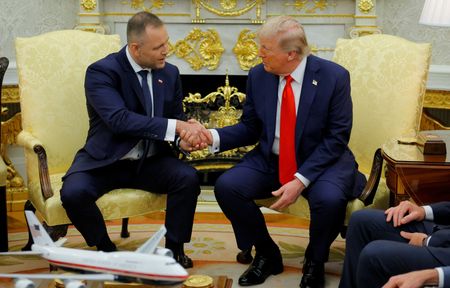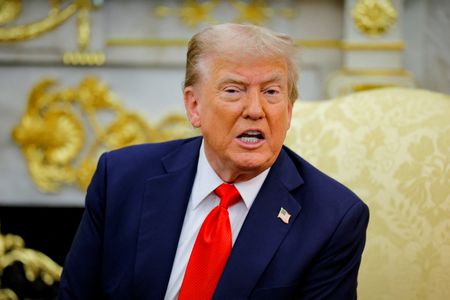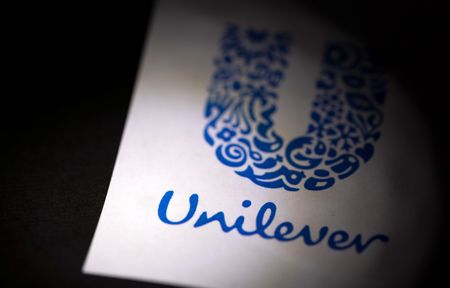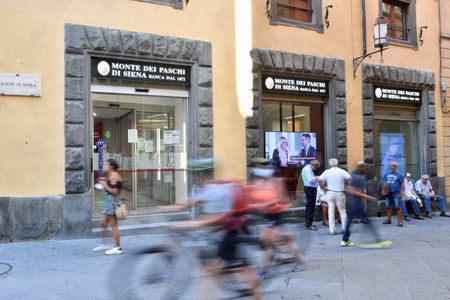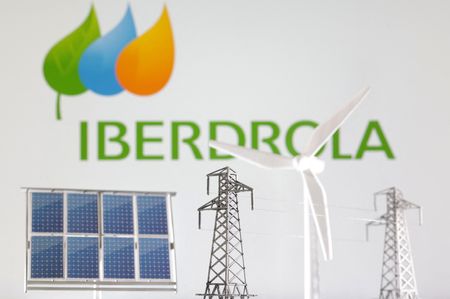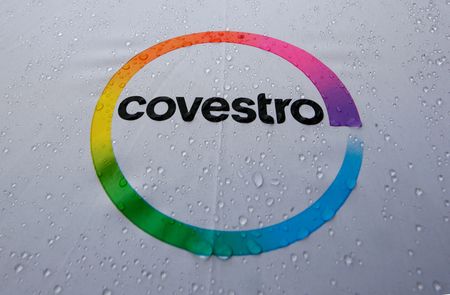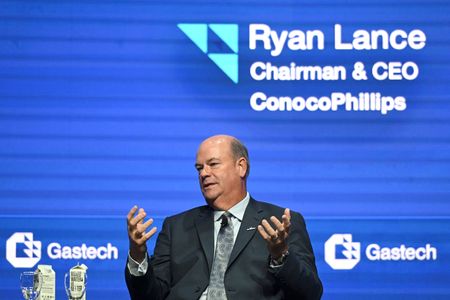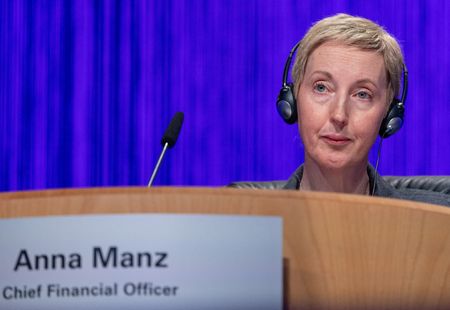By Jeff Mason, Andrea Shalal and Anna Koper
WASHINGTON (Reuters) -U.S. President Donald Trump told Polish President Karol Nawrocki that the U.S. will “help Poland protect itself” as he met on Wednesday with the conservative nationalist he had backed in Polish elections, where they are also expected to discuss Russia’s war in Ukraine and energy security.
Sat alongside Nawrocki in the Oval Office, Trump also remarked on the prior evening’s extravagant military parade organized by Chinese President Xi Jinping in Beijing, where Russian President Vladimir Putin was a guest of honor, calling it beautiful.
“I thought it was very, very impressive, but I understood the reason they were doing it, and they were hoping I was watching, and I was watching,” Trump said. “I thought the United States should have been mentioned last night because we helped China very, very much.”
Trump extended the invitation days after Nawrocki was sworn in early in August and then intervened to ensure he joined a telephone call about Ukraine with European leaders instead of his rival, centrist Polish Prime Minister Donald Tusk.
The president hosted Nawrocki at the White House in May, backing him at a crucial moment in the Polish election. Nawrocki went on to defeat the candidate of Tusk’s pro-European, centrist party a month later.
Trump said in the Oval Office that the U.S. has a “tremendous relationship” with Poland and that the two leaders would discuss trade, including Poland’s purchase of U.S. weapons.
The talks are expected to center on stalled negotiations to end the war in Ukraine and Poland’s security concerns amid signs that Trump has grown frustrated with Putin for failing to move forward on peace efforts.
On Tuesday, Trump said he was disappointed in Putin, adding that his administration planned some action to reduce deaths in the war. Poland, a member of the North Atlantic Treaty Organization, borders both Russia and war-torn Ukraine.
Asked on Wednesday if he had any words for Putin, Trump replied: “I have no message to President Putin. He knows where I stand.”
Trump greeted Nawrocki at the White House with a flyover by U.S. pilots in military jets ahead of their Oval Office meeting and a private lunch.
Charles Kupchan, a senior fellow at the Council on Foreign Relations, said Nawrocki would urge Trump to stand firm against Putin and refrain from reducing U.S. troops in Poland.
“From the Polish side, it’s clear what the message will be, and that is, ‘Don’t get played by Putin, stand up to him and we need a united transatlantic position if we’re going to get an end to the war,'” Kupchan said.
Nawrocki was also expected to push for an increased U.S. commitment to Polish security and more troops but that could be a tough sell at a time when the U.S. military’s force structure review was likely to recommend fewer troops in Europe, he added.
‘A TOUGH NEIGHBORHOOD’
The U.S. military presence on NATO’s eastern flank, including Poland, remains one of the central issues for Warsaw, which is seeking assurances of continued support.
“The success of his (Nawrocki’s) special relationship with the MAGA movement and with President Trump would be if the United States increased its presence in Poland,” Polish Foreign Minister Radoslaw Sikorski told journalists on Tuesday, referring to Trump’s defining slogan for his presidency: Make America Great Again.
In Poland, the run-up to the visit has seen open conflict between the foreign ministry and the presidential palace over preparations, and, unusually, there is no high-ranking government official in Nawrocki’s delegation.
Trump has long been supportive of Poland, lauding its leadership in boosting military spending and acknowledging its geographic position in “a tough neighborhood.”
But experts say he will be looking for Warsaw to buy even more U.S. weapons for its own use and to send to Ukraine.
Poland is a big buyer of U.S. arms, such as M1A2 Abrams tanks, F-35 fighter jets, AH-64 Apache helicopters, Javelin missiles and HIMARS rocket launchers. In June, Washington said it would give Poland a $4 billion loan guarantee to buy more.
Paul Jones, a fellow at the Center for European Policy Analysis, who served as U.S. ambassador to Poland when Trump visited Poland in 2017, said Poland’s commitment to U.S. energy projects should appeal to Trump’s business instincts.
(Reporting by Jeff Mason and Andrea Shalal in Washington and Anna Koper in Warsaw; Additional reporting by Trevor Hunnicutt; Editing by Clarence Fernandez and Nick Zieminski)

